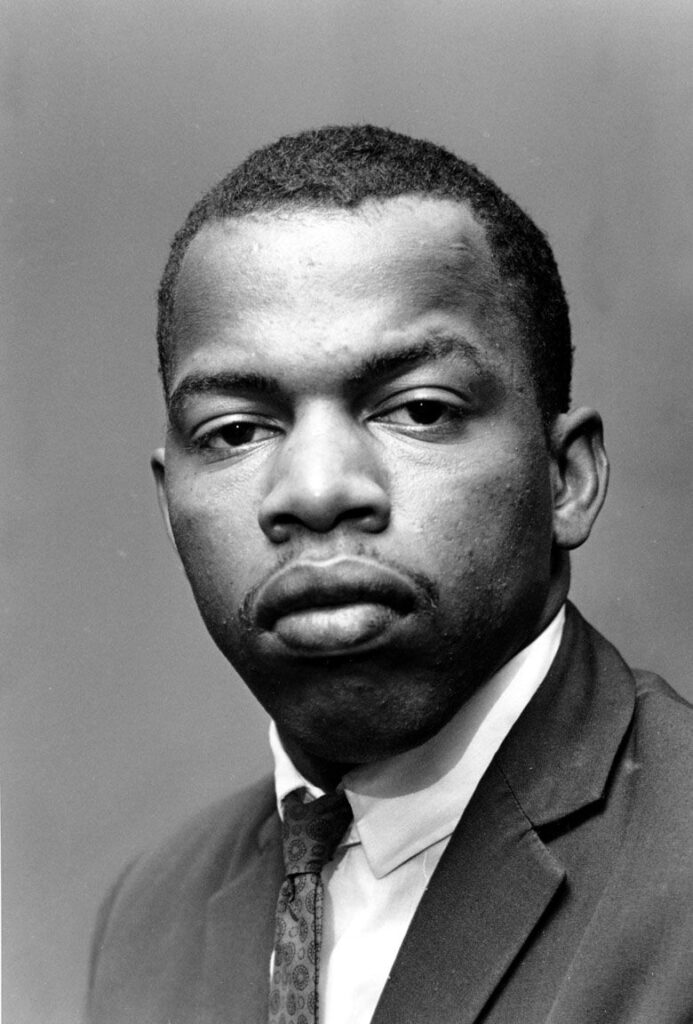
I recently read John Lewis: A Life by historian David Greenberg. He argues that only Martin Luther King, Jr. contributed more to the civil rights movement than Lewis.
What struck me most about Lewis was how he was utterly courageous and courageously committed to using the non-violent resistance teachings and methods of Gandhi and MLK to fight for social justice and human rights. By the time he turned 21, he had been jailed close to 20 times.
While participating in various marches, rallies and sit-ins, he and his fellow activists were regularly kicked and beaten with bats and chains. During the Freedom Bus Rides through the South to call attention to the segregation of public facilities and spaces, he and his fellow riders, both Black and White, were fully aware that in many towns, they would be “welcomed” by hate filled mobs fully prepared to brutally beat, if not kill, them. Often, while local and state police looked on. Sometimes, those local authorities “participated” themselves.
It’s no wonder several of the riders left sealed envelopes containing their last wills and testaments with ride organizers before boarding the buses. Yet, Lewis never wavered in his beliefs, words, deeds and sacrifices for the cause of freedom and justice.
This book was not only inspiring, it was extremely challenging. It has left a nagging, haunting question in my mind. In the same situation, would I have been as courageous and committed as John Lewis? Would I have been willing to absorb the vitriol and the blows that he and others endured to resist non-violently? Would I have been willing to put my life on the line for freedom and justice?
I fear we will all have to consider the same question. Not in 2026. Not next month. But now. This is no longer hypothetical.
Last Saturday, an estimated 5.0 million citizens gathered in over 2,000 “No Kings” rallies held throughout all 50 states. Thankfully, those protests were peaceful. But if they continue to grow in scope and passion, we must consider the likelihood they will turn violent and perhaps, deadly.
What might happen when that occurs? History tells us that martial law would likely be declared. Martial law has been declared at least 68 times in the United States. These declarations have been made by local, state or federal officials and have occurred in response to a variety of events, including wartime threats, civil unrest, labor disputes and natural disasters.
When martial law is in effect, the military commander of an area or country has unlimited authority to make and enforce laws.
In other words, you lose all your rights, including your first amendment rights which guarantee freedom of religion, speech, press, assembly, and the right to petition the government.
In such a tense, unstable environment, anything can happen, including shots being fired. Sound far-fetched? It’s not. Members of the Ohio National Guard turned their guns on US citizens protesting the Vietnam War at Kent State University in 1970.
The point is not to be alarmist, but rather realistic and cleareyed about what’s at stake.
Not since the Civil War has our nation and democracy itself been on such shaky footing. Free speech, freedom of the press, voting rights and the rule of law are all under attack. Universities are being threatened for allowing protests and using equal opportunity tenets in admissions. Law firms are being threatened if they represent anyone fighting wrongs of our government. Our allies and trading partners are being penalized aggressively, such that America may find itself a country with few friends among the democratic nations. Immigrants who have been lawfully granted residency in this country are being deported and sent to heinous prisons in El Salvador. Habeas corpus, or the right of due process, is being ignored. Programs such as Social Security, Medicaid and Medicare are on the chopping block. Educational, health care, foreign aid and environmental institutions, standards and programs are being dismantled. Books are being banned and History is being altered or erased entirely.
The result is widespread chaos, fear, distrust and anger. Clearly, we, as a nation, are heading into a period of intense civil unrest.
Which brings us back to John Lewis.
Make no mistake, there will come a time when we all must choose a side. Fealty to a dictator or adherence to the United States Constitution and rule of law? What will you do? And how far will you be willing to go to defend democracy?
I know how John Lewis would have responded. The question we must ask ourselves is how we will respond.
Choose wisely. History is watching.